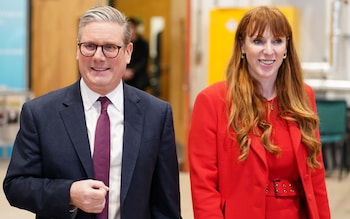I take a deep breath and click the start button. For the next 15 minutes, I will be interviewed for a job by a robot.
Every word of my response to a series of interview questions will be scrutinised by artificial intelligence, using dozens of algorithms.
A place on one of Britain’s leading graduate schemes could hang in the balance. Fail to impress and I’ll find myself on the rejection pile – along with thousands of other candidates.
“Many companies are adapting to virtual interviewing to make the hiring experience more convenient to busy students,” a smiling woman tells me in a pre-recorded video at the beginning of the assessment.
I am then given 30 seconds to prepare my first answer, which must be delivered in no more than three minutes. The AI bot asks me about my hobbies and whether I have ever faced difficulty working in a team. Responses can be re-recorded as many times as a candidate wants.
But a human recruiter is unlikely to ever see the footage. My answers are being tested by a computer against a set of criteria. This is increasingly how young people are being asked to take their first step on the career ladder.
The software I am using is a test version of a typical AI interview provided by HireVue, a virtual recruitment firm.
Companies including Unilever, Microsoft and Nestle have used AI to hire staff, and dozens more are said to be incorporating more automation into their hiring processes for top graduate jobs as competition grows more fierce. There were on average 86 applications for every vacancy in the graduate jobs market last year, according to the Institute of Student Employers, up 38pc year on year.
‘HR used to just pick applicants out a random’
AI interviews cut out the need for layers of HR and offer companies facing large numbers of applicants for roles a fairer way of creating a candidates shortlist, according to Tom Cornell, a psychology consultant at HireVue.
“A large part of it does come down to efficiency, particularly when you are dealing with volume,” said Cornell, who designs the interviews. “Rather than having a recruiter spend 30 minutes perhaps conducting a phone screening or reviewing a full interview, the AI technology passes through it in a matter of minutes and can provide some automated scoring.
“Especially the instances when you’re dealing with 1,000 applicants or upwards of 1,000 applicants, the ability to rank candidates based on the AI’s screening… is a huge efficiency gain.”
When faced with a huge number of applications, in the past some hirers would simply discard many of them.
He added: “While, yes, it’s less personal than the face-to-face interview, more individuals are getting a chance to get past that initial hurdle that could be as simple as ‘well let’s just put half in one pile and half in the other, and proceed with one at random’.”
‘I’ve done 85 job applications and still have not spoken to a human’
AI interviews are proving so popular with firms for entry-level positions and graduate schemes that some students have complained of finding it increasingly difficult to secure a face-to-face interview.
When Kai completes a master’s degree at a prestigious university this summer, he hopes to find a job in banking. But despite having applied to 85 jobs and being invited to dozens of interviews he is yet to have a face-to-face conversation or phone call as part of an application.
The 23-year-old economics student said his search for a job felt “soulless”, and that being asked to attend an AI interview suggested firms simply did not care enough to properly interview candidates.
He said: “You have to remember that you’re not simply having a 15-minute, one-way conversation with a robot that’s judging you on a whole heap of inputs.
“You’re doing this after giving hours of your time to an application process, most typically: completing a near 10-page application form, writing a supporting cover letter, answering various business-specific questions, as well an assortment of technical assessments if you’re so lucky as to make it through the initial screening.
“It’s a completely soulless experience that conveys a feeling of no care nor input from the employer’s side. I think what’s perhaps most concerning is the widespread use of them for graduate hiring nowadays.
“Having done everything you’re told to do to get a job – I achieved straight As and A*s throughout GCSEs and A-levels, obtained a strong bachelor’s from a reputable university, and am currently averaging distinction in my master’s programme – I am yet to speak to a real human after applying for over 85 graduate programmes,” he added.
‘You’re automating an experience that should be human’
Abby Robbins, of recruitment agency Yellowbricks, said that even a 10-minute phone call could be better for employers and candidates than using AI.
She said: “If someone is coming out of university with lots of wonderful grades they still need to find their first job and to speak to someone who can give you a bit of perspective as to what the employer is really looking for.
“It has become a buzzword within recruitment to lean into AI, but you’re automating an experience that should be human. When we interview candidates we are trying to get a feel for how they will fit in our team [and] everyone comes from a different walk of life… Even if it’s just a 10 minute call with a candidate it will always be better.
“We’re not letting someone speak to a human until a second or third interview. They have no clue about how they are being perceived. They are being forced to crack the code of ‘what does AI want to hear?’”
Disclaimer: The copyright of this article belongs to the original author. Reposting this article is solely for the purpose of information dissemination and does not constitute any investment advice. If there is any infringement, please contact us immediately. We will make corrections or deletions as necessary. Thank you.



